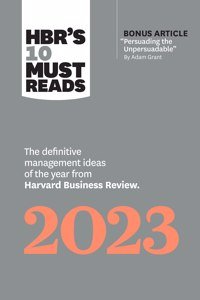Only logged in customers who have purchased this product may leave a review.
Sale!
Electronic Business (Paperback) | Released: 16 May 2008
By: Geoffrey Sampson (Author) Publisher: BCS Learning & Development Limited27.09% Off ₹288.00
You save ₹107.00
Technology continues to change the way we do business, with more companies relying on electronic tools to perform an increasing array of functions. IT professionals play a crucial role in this new commercial landscape, and their skills are pivotal to success of many organizations. Electronic Business explores the principles and... Read More
In stock
Ships within 1-2 Business Days

100% Orginal Books

Easy Replacement

Certified product

Secure Checkout

On time delivery
Author:
![]()
Geoffrey Sampson
Publisher Name:
![]()
BCS Learning & Development Limited
Language:
![]()
English
Binding:
![]()
(Paperback)
About The Book
Technology continues to change the way we do business, with more companies relying on electronic tools to perform an increasing array of functions. IT professionals play a crucial role in this new commercial landscape, and their skills are pivotal to success of many organizations. Electronic Business explores the principles and practices associated with e-business and e-commerce, helping you to exploit electronic opportunities to their full potential Key areas covered includeBusiness Process Re-Engineering (BPR)OutsourcingSoftwareE-TailingImproving B2B efficienciesBusiness-to-Government trading Enterprise Resource Planning (ERP)About Author:?? Acknowledgments Abbreviations Preface Introduction Scope and assumptions Bubble and reality E-business recovers The importance of opinion A learning process B2C, B2B, B2G Business process re-engineering Abandoning preconceptions Ambiguity, secrecy and unpredictability User-centred versus supplier-driven The need for soft skills A professional basis E-business is business IT and the structure of the economy The move to outsourcing Disaggregation What to produce how? Supply and demand An invisible hand Positives and negatives of business Coases theory of the firm Transaction costs Coase and IT Startups become buy-ups The virtual organization Control versus trust Firms as tools E-commerce strategies A case study Amazon is founded Amazons initial business model The online book-buying experience Getting physical Get Big Fast Technology lock-in Do lock-ins exist? First versus best Elusive profits Different performance measures Diversification Different kinds of retailing Experience goods Tight margins Alliances Intermediation and disintermediation Confusion of terms Increasing liquidity Clicks and mortar versus pure play The technology provider role Conclusion E-business and the institutions of society Institutional barriers Wealth, poverty and social institutions Digital signatures Public key infrastructure Fulfilment Gaps in the law The law of contract Trademarks and search engine rankings Intellectual property The patent system breaking down Responsibility for public comment The problem of trust Fraud Law, IT, and philosophy of mind Erosion of privacy The public awakes Consumer ratings Site certification services Winning hearts and minds Jurisdiction, regulation, taxation E-commerce across frontiers The E-Commerce Directive A Framework for Global Electronic Commerce Increased e-business regulation Security standards Disability discrimination Conflicting ideals The Nazi memorabilia case Preserving national cultures The Hague Convention Compliance becomes an IT issue Costs of compliance Authority haggles with business Taxation Tax neutrality A tax-free zone? Does IT matter? An axiom questioned Elusive productivity gains Installation period and deployment period Productivity is not the same as profitability The hunt for competitive advantage Computing power does not equal strategic significance IT needs to become ordinary Contrary opinions Software as a service SaaS and smaller companies The importance of small firms How far will SaaS spread? Shifting to an intangible economy Intangible goods and assets Capital assets versus products Injuring the invisible hand Intangibles are economically odd New ideas about economic growth Economy of abundance Reweighting the value chain Massively multi-player online games How MMOs work Growing populations MMOs as business locations Real economies in virtual worlds Virtual marketing Turning customers into co-designers Economics as an experimental science Are MMOs being over-hyped? Intangibles here to stay Enterprise resource planning Blurred definitions The vision The core ERP functions Linking information islands BMW Hams Hall Changing company culture The other side of the picture Usability and expense Reforming business practices Political problems The danger of over-centralisation Oracle advances and retreats Freezing business evolution The evidence of business process patents A shift to punctuated equilibria? Political fallout A temporary truce Marketing and customer relationships What marketing is Like it or not The four Ps Multinational marketing Customer relationship management CRM under a cloud CRM revives Marketing to individuals The Tesco Clubcard How Clubcard data is used Advertising and Web 2.0 Two-way versus one-way publicity Online advertising Advertising via search engines Increasing selectivity Online advertising booms Ethical dilemmas for Google Hidden persuaders Search engine optimization The concept of virtual communities Virtual communities as a marketing tool B2B marketplaces Web 2.0 Corporate blogging How generalisable is Microsofts approach? E-marketing is marketing Diverse enterprise applications Further application genres Business intelligence Historical v. real-time analysis Data-mining Constraints on data-mining deployment Knowledge management Uses of business intelligence Web analytics Workflow management Slow penetration Supply chain management The bullwhip effect Queuing theory Human v. automatic supply-chain optimization Extending influence along the supply chain Lean manufacturing Exploiting RFID data RFID for managing assets An avalanche of data RFID in the retail arena e-Procurement Online B2B auctions Too many genres to list Web services A new buzzword Limitations of electronic data interchange A web-service example Why not just use the web? Machine shall speak unto machine Loose couplings What is happening now Unsolved problems An optimistic consensus Evolutionary computing meets e-business Levels of prior agreement Formal languages and business innovation Disposable applications The open source movement Naive or world-changing? A parting of the ways The free software foundation Open source, proprietary, free Technical and economic issues Technical feasibility What does proprietary buy us? Manufacture or service? sequences of manufacture delusion Programming for money or love The breakthrough to credibility Opposition from Microsoft Open source in government computing Adoption by the private sector Proprietary software is opened The other point of view How good a precedent is Linux? Security flaws emerge Matching effort to needs Leadership and organization Will the bazaar model survive? Not whether, but what Microsoft returns to the fray A mixed economy Into the future A speculative conclusion Mobile computing The hypermobility myth Regulation of the profession Unstructured data The need for better techniques Envoi References IndexAbout the Author Geoffrey Sampson was educated at Cambridge and Yale Universities. He has taught at LSE, Lancaster and Leeds Universities and worked as a consultant in the private sector. He is currently a professor of computer science at Sussex where he teaches e-business.










Reviews
There are no reviews yet.